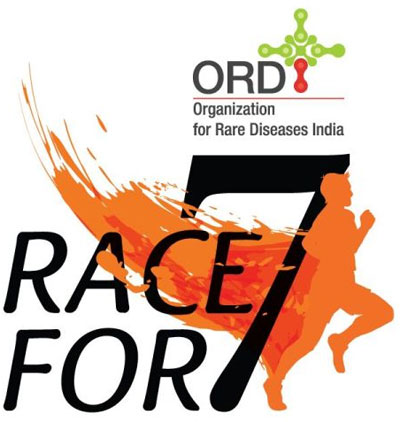Many believe that lack of provision for tax benefits has kept people from donating
Waiting in vain for his treatment to begin at the Capital’s Maulana Azad Medical College (MAMC), 20-month-old Rohit succumbed to Gaucher Disease, a rare genetic disorder that affects fat metabolism.
MAMC is one of the eight institutions in the country identified as a Centre of Excellence (CoE) for treatment of rare diseases.
Rohit died on January 3 but his name still appears on the official portal rarediseases.nhp.gov.in maintained by the Ministry of Health and Family Welfare. The site lists 222 patients with rare diseases who are registered for treatment under the National Policy for Rare Diseases, 2021. Three-fourth of all rare disease patients happen to be children.
The policy was approved on March 30 last year by the then Union Health Minister Dr. Harsh Vardhan.
It envisaged an innovative crowdfunding mechanism to enable the Corporate sector and individuals to extend financial support for treatment of patients with rare diseases.
As per the policy, the annual cost of treatment for some rare diseases may vary from ₹10 lakh to more than a crore each year with lifelong treatment.
The crowdfunding portal became operational in August, 2021, and has raised a meagre ₹72,975 in the last six months.
Due to the dearth of funds, the CoEs have not been able to begin treatment. At MAMC and All Indian Institute of Medical Sciences (AIIMS) put together, 46 rare disease patients are registered
Mr. Manjit Singh lost two sons to the Hunter Syndrome, a rare disease. He feels the lack of provision for tax benefits under 80G of the Income Tax Act, has kept people from donating.
He runs Lysosomal Storage Disorders Support Society (LSDSS) that helps affected families. “Whoever wishes to contribute to crowdfunding, looks at tax benefits too,” he remarked.
Last June Dr. Harsh Vardhan presided over a meeting with stakeholders, from public sector undertakings (PSUs) and private companies, to give a push to voluntary fund raising in order to address health challenges. Member participants from ONGC, OIL and IOC had then requested the government to consider the contribution to crowdfunding as Corporate Social Responsibility (CSR) expenditure under Schedule 7 of the Companies Act.
The participants felt it would facilitate generous donations. But after Dr. Harsh Vardhan stepped down from the post of Health Minister following the Cabinet reshuffle in July, everything came to a standstill.
Cases piling up
Families finding it difficult to afford the expensive treatment of rare diseases have knocked on the doors of the judiciary with some success.
In December 2017, the Delhi High Court directed Delhi government to expeditiously process the application of Rohit for providing free Enzyme Replacement Therapy (ERT). Over the years, the High Court has come to the rescue of several other rare disease patients by issuing orders for their free treatment.
On December 14, the HC took cognisance of insufficient funds through crowdfunding and urged the Centre to look into the matter. The HC noted that all those identified under the policy could not be made to suffer due to lack of funds. “Any delay in commencement of their treatment may prove fatal and defeat the purpose for which the policy was created,” it said.
The High Court, which is currently seized of a batch of petitions by 22 rare disease patients, had ordered AIIMS, Delhi and the other CoEs to commence treatment of the children.
Waiting in limbo
Two months on, both AIIMS and MAMC are yet to begin the treatment protocol. Ravi Jhawar, with two boys aged 3 and 5 – suffering from rare genetic disorder MPS II (Mucopolysaccharidosis), said he looks up the portal daily with “hope”.
An employee at a private bank, it is beyond Mr. Jhawar to bear the cost of the treatment. “First, I struggled to include their names in the list of patients. And now, the wait is for the treatment to begin,” he lamented.
Mr Jhawar told The Hindu he went to AIIMS on February 3 but was turned away by the authorities, who told him they did not have any instructions from the government.



